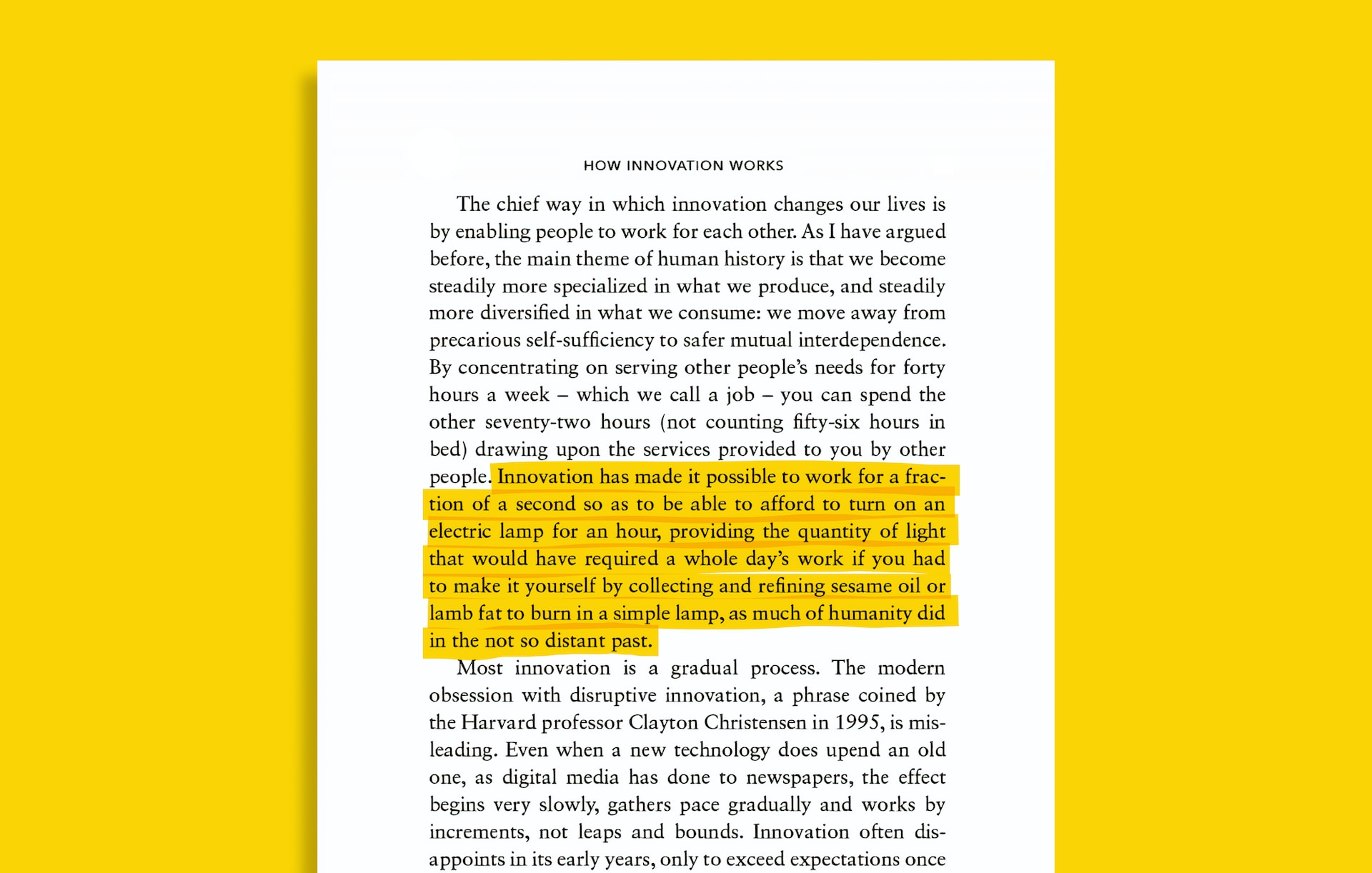How to Write a Book Proposal to Get Published Traditionally
Are you dreaming of seeing your book on a shelf in a bookstore?
To turn this dream into reality, understanding how to write a book proposal is essential.
The book proposal is your chance to show literary agents and publishers the potential of your book idea. It's more than just an outline of your book; it's a business plan that convinces them they should invest in your work.
A compelling book proposal opens the door to the book publishing process and brings you one step closer to securing that coveted book deal.
So, in this guide, you'll learn the key elements of how to write a book proposal that stands out. You'll discover how to showcase your book's concept, audience, and marketability, as well as your own credentials as an author.
By the end, you'll have a clear roadmap that aligns with the expectations and standards of the publishing industry, setting the stage for your book's success.
Table of Contents
- What is a Book Proposal?
- What is the Purpose of a Book Proposal?
- Why Do Authors Write Book Proposals?
- What to Include in a Book Proposal?
- 6 Best Tips to Write a Book Proposal That Works
- The 5 Most Common Mistakes in a Book Proposal
- Finding a Literary Agent (And Do You Need One?)
- Perfect Your Book Proposal with a Ghostwriter
- Download Our Book Proposal to Get Started
- Final Words on Writing a Book Proposal
What is a Book Proposal?
A book proposal is the book equivalent of a business plan.
It's the blueprint that outlines your book's potential to make an impact in the publishing world. It's also a strategic tool that you can use to persuade literary agents and publishers of the value and viability of your books.
Think of your book proposal as a job application for your book, but you're applying to get a book deal.

Your book proposal also serves as a formal introduction of yourself to the literary agents and publishers. It outlines your credentials, experience, and unique perspective.
This section isn't just about boasting your achievements; it's about showing how your background and expertise add credibility and depth to the topic you're writing about.
In essence, a book proposal is a comprehensive argument crafted to convince the publishing world that your book deserves to be published. It demonstrates your book's potential to be both a critical and commercial success.
A strong proposal not only sells your book idea but also sells you as the author, positioning you as the perfect candidate to write and promote this book.
Now, you may wonder why a book proposal is so important in the traditional publishing world.
What is the Purpose of a Book Proposal?
Book proposals are used to sell nonfiction books to publishers. They act as a detailed pitch, showing why your book deserves to be published and how it can succeed in the market.
That's why the book proposal is a critical step for nonfiction writers, especially if they're aiming to secure a book deal with a publishing house.
But there is more to the book proposal. It also:
-
Introduce the Book Concept: The proposal serves as an introduction to your book, detailing what it's about and why it's necessary. It's your chance to convince publishers of the value and potential of your idea.
-
Demonstrates Marketability: The proposal should identify your target readers, articulate why they need your book, and outline your plan to reach them, demonstrating the book's viability as a product.
-
Showcases Author Expertise and Writing Skills: The proposal is an opportunity to display your knowledge and ability to write engagingly and informatively. Including a sample chapter allows publishers to gauge the quality and style of your writing.
-
Outlines Qualifications: The proposal should highlight your credibility and authority on the book's subject matter, making a case for why you are the best person to write this book and why publishers should invest in you.
-
Presents a Marketing Strategy: The proposal includes a comprehensive plan for how you, as the author, will contribute to promoting and selling the book. It outlines how you will use your networks and resources to support the book's success after publication.
Why Do Authors Write Book Proposals?
Authors write book proposals to present their non fiction book ideas in a structured and compelling way to publishers.
They take this opportunity to demonstrate how their book fills a gap in the market, addressing the specific needs and interests of readers.

The proposal includes sample chapters, give a little sneak peek into the book. Additionally, a book proposal outlines a clear chapter outline.
Authors also write proposals to clarify who their audience is.
The bottom line is: a book proposal acts as a bridge between an author's vision and a publisher's expectations. It's a detailed document that outlines the potential of a book, its place in the market, and the strategy to make it a success.
What to Include in a Book Proposal?
It's essential to include key elements that showcase the value and potential of your book.
The book proposal is your opportunity to make a strong, professional case to publishers about why your book deserves to be published. Each part of the proposal works together to make a compelling case for your book's publication.
Here are the 9 key elements of a book proposal for getting your work published:
-
Overview
-
Target Market
-
Author Bio
-
Marketing Plan
-
Competitive Titles
-
Timetable
-
Length and Special Features
-
Chapter Outline
-
Chapter Sample
1. Overview
In a book proposal, the Overview is a key component.
It should contain a brief summary of your book, highlighting its essence and why it stands out from a selling point of view.

Think of the Overview as an elevator pitch. It introduces your book, setting the tone for what's to come. This section should be engaging, concise, and clear.
The Overview does not limit itself to what your book is; it also discusses why it matters. You need to convey the unique angle or the fresh perspective your book brings.
In the Overview, you also need to demonstrate your understanding of where your book fits within the current market. It's not enough to say your book is different; you need to show how it fills a gap or offers a new take compared to existing titles.
2. Target Market
Understanding and clearly defining the Target Market is crucial.
It starts with understanding who will read your proposed book, why they would be interested, and how they will benefit from it.
This section matters greatly because it shows publishing houses that you're not just writing a book; you're offering a product designed for a specific group of book buyers.

Successful books often cater to a well-defined audience. As a nonfiction author, your job is to pinpoint who that audience is for your book. Are they professionals in a particular field? Are they enthusiasts of a certain hobby?
Understanding your target market allows you to tailor your writing to meet their needs and interests, increasing the chances of getting your book published and doing well.
Your Target Market section should include demographics such as age, gender, and occupation, if relevant. It should also delve into the psychographics of your audience — their interests, challenges, and what they are looking for in a book like yours.
This shows publishers that you have a deep understanding of your readers and how your book serves them.
3. Author Bio
This section is where you, as an author, get to prove your credibility, experience, and connection to the content of your entire book.
Publishers aren't just investing in a book; they're investing in you.

They want to know who you are, what you've accomplished, and why you're the right person to write this book.
A well-crafted Author Bio can establish trust and confidence in your ability to deliver a valuable and marketable book. It should start with the basics:
- your professional background
- your education
- any relevant experience.
If you've written or contributed to a book before, whether it's a self-published book or through traditional publishing, mention it.
Highlight awards, recognitions, or notable projects that relate to your book's topic.
It's also important to follow submission guidelines provided by the publisher or agent. These guidelines might specify certain details they want to know about authors, so adhering to them can increase your chances of making a good impression.
4. Marketing Plan
This section matters because even the most compelling book needs a solid strategy to reach its audience and achieve good sales figures.
Your Marketing Plan should briefly summarize your approach to promoting and selling your book.

Start by identifying your primary audience and how you plan to reach them. Are you going to use social media, public speaking engagements, or perhaps workshops?
Detail any platforms or networks you will leverage and how they align with your target audience.
It's also important to discuss any existing following or audience you have, such as a blog readership, social media followers, or professional network. Publishers want to see that you have a base to start with, which can significantly boost your book's initial exposure.
Outline any partnerships or connections you plan to utilize.
Maybe you have contacts in media, or perhaps there's a potential for collaboration with organizations related to your book's topic. These partnerships can be pivotal in extending your reach.
In short, the Marketing Plan in your book proposal is your chance to show potential publishers that you're not just a writer but also a proactive partner in the book's success.
5. Competitive Titles
The Competitive Titles section demonstrates to publishers that you understand the current market and where your book fits within it.
This section is about identifying previously published books similar to yours and explaining how your book is different and needed.
Begin by listing books that address the same subject or cater to a similar potential reader as your proposed book.
For each title, provide a brief overview of its content, its approach to the subject, and its reception (like sales figures or accolades). This shows that you've done your homework and understand the landscape your book will enter.

Next, it's important to differentiate your book.
Here, you describe what sets your book apart. Does it provide new research, a unique perspective, or perhaps a different methodology?
This part is crucial; it's where you convince potential publishers that despite existing works, there's a niche your book fills.
This section also reflects on the question, "Now what?" It's not enough to say your book is different; you need to explain why that difference matters.
6. Timetable
The timetable outlines your schedule for completing the book, showing potential publishers that you're organized, serious, and realistic about the process.
Your Timetable should include a clear, detailed schedule of your writing and revision plans. Start with when you expect to finish the manuscript, then break it down further.
Mention any significant milestones, like when you'll complete each chapter or section. If your book requires research, interviews, or travel, include time for these activities as well.

Be realistic, but also show commitment.
If you're working with a university press or a specific publisher with known schedules, consider their timelines, too. They may have specific windows for review and publication that you should account for in your planning.
While discussing the Timetable, maintain a tone that's straightforward and confident. You're not just sharing a plan; you're reassuring the publisher that you're a reliable partner in the book's approach.
It's not just about when you'll write; it's about proving you can manage the task ahead and meet your commitments, whether you aim to work with a traditional publisher or consider self-publishing.
A well-thought-out Timetable can significantly strengthen your proposal, showing publishers that you're ready and capable of bringing your book to life.
7. Length and Special Features
This section tells publishers exactly what they can expect in terms of the size and scope of your book, as well as any unique elements that set it apart.

First, the Length part should clearly state the expected word count or page number of your book. This is crucial because it helps publishers understand the scale of your project.
Being upfront about the length shows you've thought through your book's approach thoroughly and realistically.
Special Features are what make your book stand out. This could be anything from high-quality images and illustrations to interactive elements or online resources.
If your book includes interviews with experts, unique personal stories, or case studies, mention these too.
These features not only add value to your book but also can make it more appealing to a publisher looking for something distinctive.
8. Chapter Outline
This section provides a roadmap of your book, chapter by chapter, showing the structure and flow of your content.
This section is crucial because it gives potential publishers a clear, detailed view of your book's organization and the progression of your ideas.

This section should list each chapter, preferably with a working title for each. Beneath each title, include a brief summary of that chapter's content.
This doesn't need to be extensive, but it should give a good sense of what each part of your book covers and how it contributes to the overall narrative or argument.
When writing this section, keep your sentences short and to the point. You want to convey a lot of information in a compact space.
Maintaining a friendly yet authoritative tone helps make your proposal approachable but also shows that you take your project seriously.
9. Chapter Sample
It's your chance to shine, to show potential publishers not just what you plan to write about but how you write. This section matters immensely because it's often the deciding factor in whether a publisher feels compelled to dig deeper into your proposal.

A Chapter Sample should be a well-written, engaging excerpt from your book. It doesn't necessarily have to be the first chapter, but it should be representative of your best work and the book's overall tone and style.
The sample should immerse readers in your subject matter, showcase your writing ability, and leave them wanting more.
6 Best Tips to Write a Book Proposal That Works
Writing a book proposal is a significant first step in your journey as an author.
It's your chance to show potential publishers that your book has what it takes to succeed.
Here are six tips to help you craft a compelling proposal:
-
Identify the Target Audience: Know who your readers are. Understand their interests, needs, and habits. This will not only help you write a book proposal that appeals to them but also assures publishers that there's a market eagerly waiting for your book.
-
Identify the Gap in the Market: Clearly articulate what makes your book different and needed. Show that you've done your research and understand where your book fits in the current landscape. Highlighting this gap will demonstrate the unique value your book offers.
-
Hook Them in with Your Elevator Pitch: Start with a strong, concise statement that captures the essence of your book. This should be a compelling summary that grabs attention and makes publishers want to read more.
-
Research Nonfiction Competitive Titles: Look for recent books similar to yours and explain how your book differs from them. This shows publishers that you're aware of the competition and confident in your book's unique place in the market.
-
Create a Sound Marketing Plan: Publishers want to know that you're committed to making your book a success. Outline how you plan to promote your book, including any platforms, networks, or strategies you'll use. This shows that you're not just a writer but a promoter, too.
-
Provide a Well-Selected Sample Chapters from Your Manuscript: Give publishers a taste of your writing with one or two well-crafted sample chapters. This is your chance to showcase your style, insight, and ability to engage readers. Make sure these chapters represent the best of what your entire manuscript offers.
Your book proposal is more than just a document; it's a reflection of your dedication and potential as an author.
Take your time, be thorough, and show publishers why your book deserves to be published.
With these tips in mind, you know how to write a book proposal that stands out.
The 5 Most Common Mistakes in a Book Proposal
At Trivium Writing, we help aspiring authors write and publish books. As such, we often work on book proposals.
Here are the 5 most frequent mistakes made in a book proposal:
-
Stating That The Book is for Everyone: Claiming a book is for everyone often means it's not tailored enough to appeal strongly to any particular group. There should be a clear market and a gap within that market that your book aims to fill.
-
Vague or Weak Book Descriptions: Your book description should be compelling and clear. A common mistake is not being specific about what the book covers or why it matters. Ensure your description hooks the reader, offers a solid understanding of the book's content, and highlights its unique angle or the problem it solves.
-
Overlooking the Importance of an Author Platform: Many authors neglect to showcase their author platform or don't have one at all. Your platform is your reach — your ability to market to potential readers through channels like social media, blogs, or professional networks. A strong platform can significantly enhance your book's commercial appeal.
-
Doing an Inadequate Competitive Analysis: Simply listing titles of similar books isn't enough. A common error is failing to provide a detailed competitive analysis. This should include how your book compares to existing ones and what sets it apart.
-
Not Following Submission Guidelines: Each publisher or agent may have specific requirements for book proposals. A frequent mistake is not tailoring your proposal to these guidelines.
Avoiding these mistakes can significantly improve the quality of your book proposal.
Finding a Literary Agent (And Do You Need One?)
A literary agent acts as your advocate, using their industry knowledge and contacts to place your book with the right publisher and negotiate the best deal. They earn their income from a commission on the sales they negotiate for you, aligning their success with yours.

Do You Need a Literary Agent?
If you're aiming for traditional publishing, particularly with larger publishing houses, a literary agent is often essential.
Literary agents understand the market, know what publishers are looking for, and have the contacts to get your manuscript in front of the right people.
However, if you're considering self-publishing or smaller presses, you might not need an agent.
It can be difficult to find someone who is a good fit.
Read our comprehensive guide on how to find a literary agent.
Whether you're a seasoned author or a budding writer, this guide provides you with all the insights and strategies you need. Read it to dive into the world of publishing with confidence!
Perfect Your Book Proposal with a Ghostwriter
At Trivium Writing, we understand that it can be a daunting task to write a book proposal. Our ghostwriting services are designed to alleviate that stress.
Our approach ensures that your story is told in your voice and resonates with your intended audience.

Whether you're unsure how to write a book proposal or you simply don't have the time, our team works closely with you to capture the essence of your message.
We focus on making your proposal not just a document but a representation of your vision and potential as an author.
With your ideas and our writing expertise, your story will be compellingly told, and your book proposal will stand out. For more details and to start your journey, simply reach out through our contact info. Your story deserves to be told, and we're here to help you tell it.
Download Our Book Proposal to Get Started
Our Book Proposal Template is designed to guide you through each step of crafting compelling proposals. Simplify the process of understanding how to write a book proposal and connect with your intended readers more effectively.
These templates provide a structured outline, ensuring you cover all necessary components.
Don't wait to make your book idea a reality — download our template today and start shaping your story into a proposal that captivates.
Final Words on Writing a Book Proposal
Mastering how to write a book proposal is a vital step in your journey as an author.
It's not just about presenting your idea; it's a way to convince agents and acquisition editors of your book's potential. Your proposal is a powerful tool to communicate the value of your nonfiction work and your ability as an author to reach every single reader effectively.
If you need help writing your book proposal, book a free consultation today to discuss how we can help you write and submit your book proposal!

Article by Leandre Larouche
Leandre Larouche is a writer, coach, and the founder of Trivium Writing.

-1.png)

-Jan-09-2026-01-18-03-5197-PM.png?width=352&name=SERVICES%20IMAGES%20(7)-Jan-09-2026-01-18-03-5197-PM.png)
-1.png?width=352&name=SERVICES%20IMAGES%20(18)-1.png)
-4.png?width=352&name=SERVICES%20IMAGES%20(13)-4.png)